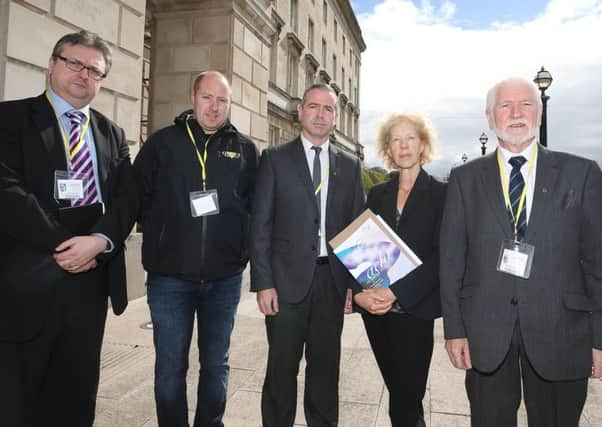Only '˜stand-alone' legislation will satisfy Irish-speaking body


Janet Muller of POBAL said: “The Irish language doesn’t need a fig leaf and neither does Ulster Scots. Our community is very clear on what we deem an ‘appropriate’ Irish language act. Not just an Irish language act but something that is actually capable of protecting and promoting the Irish language and fulfilling the needs of its speakers.
“That is a very strong community demand. I’m not aware there is any similar demand coming from lovers of Ulster Scots for an Ulster Scots act.
Advertisement
Hide AdAdvertisement
Hide Ad“We don’t need to do the same thing exactly for Irish and Ulster Scots and all the other languages – that is a bit of a distraction that could end up damaging both Irish and Ulster Scots.
“All languages have to be treated with respect, but they don’t all have to be treated in exactly the same way.”
Ms Muller said: “Eleven years ago the British government made a commitment to introduce an Irish language act and I think that international experts from the Council of Europe in February of this year, having looked very carefully at the kind of interchanges and the interactions going on in the last 10 years up at Stormont, said that the obstacles being placed in front of an Irish language act were basically sectarianism.”
Commenting on whether she believed unionists were being driven further away from exploring the role of Irish in their own cultural heritage by the highly political nature of the debate, Ms Muller said: “It has become embroiled in this because of really, really ferocious opposition and hostility to the Irish language over the last number of years.
Advertisement
Hide AdAdvertisement
Hide Ad“This isn’t something that has grown up overnight and it’s not something that’s come out of the talks. The debate that is going on at the minute in the talks is painful and unfortunate, but it hasn’t grown up overnight.
“It’s the way that the DUP has, unfortunately, dealt with this issue.”
Ms Muller said it was important that an Irish language act was “sufficiently strong and sufficiently clear” to ensure civil servants understood what kind of services they were required to provide, and added: “And to make it clear to Irish speakers what rights we had and what we didn’t have. That is the crucial point.”